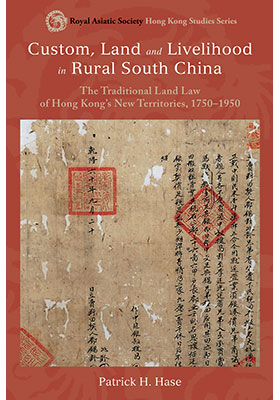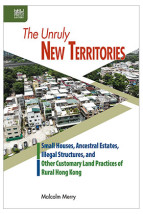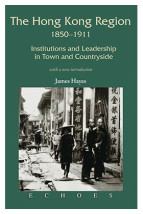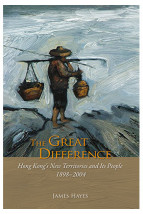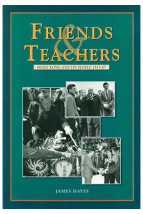Custom, Land and Livelihood in Rural South China
The Traditional Land Law of Hong Kong’s New Territories, 1750–1950
(香港新界的傳統土地法,1750–1950)
ISBN : 978-988-8139-08-8
Royal Asiatic Society Hong Kong Studies Series (皇家亞洲學會香港研究叢書)
April 2013
544 pages, 6″ x 9″, 21 b&w illus.; 79 tables
- HK$350.00
Ebooks
Land was always at the centre of life in Hong Kong’s rural New Territories: it sustained livelihoods and lineages and, for some, was a route to power. Villagers managed their land according to customs that were often at odds with formal Chinese law. British rule, 1898–1997, added complications by assimilating traditional practices into a Western legal system. Custom, Land and Livelihood in Rural South China explores land ownership in the New Territories, analysing over a hundred surviving land deeds from the late Ch’ing Dynasty to recent times, which are transcribed in full and translated into English. Together with other sources collected by the author during 30 years of research, these deeds yield information on all aspects of traditional village life—from raising families and making a living to coping with intruders—and evoke a view of the world which, despite decades of urbanisation, still has resonance today.
“This is a by far and away the best study of land deeds and land tenure systems that exists for south China’s Pearl River Delta. The book is a must read for social historians, anthropologists, sociologists, and anyone interested in Chinese land issues. Hase includes original texts of land deeds in Chinese as well as expert, clear translations in English.” —James L. Watson, Fairbank Professor of Chinese Society and Professor of Anthropology Emeritus, Harvard University
“This is an important book which documents in detail how the institutions of traditional Chinese land law developed hand in hand with the transformations of local society, before and after colonisation. Patrick Hase combines exemplary scholarship with his vast knowledge and intricate understanding of the local communities involved.” —Kentaro Matsubara, Professor of Law, University of Tokyo

